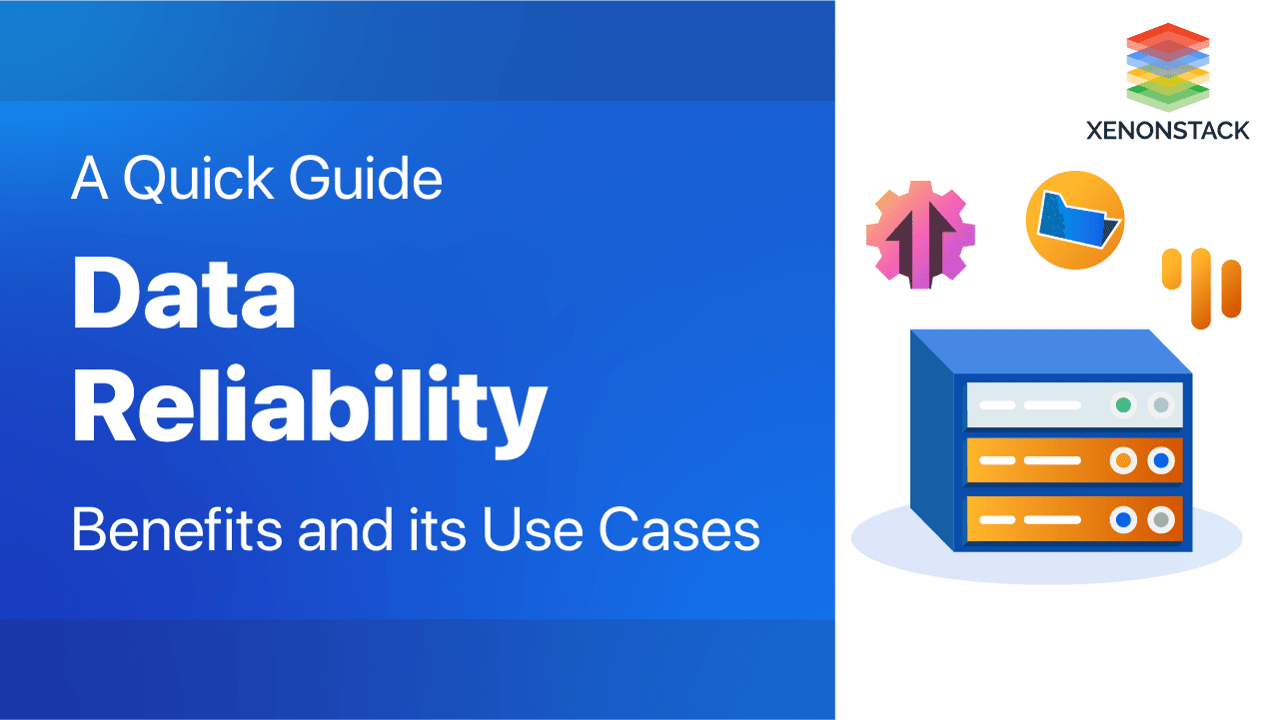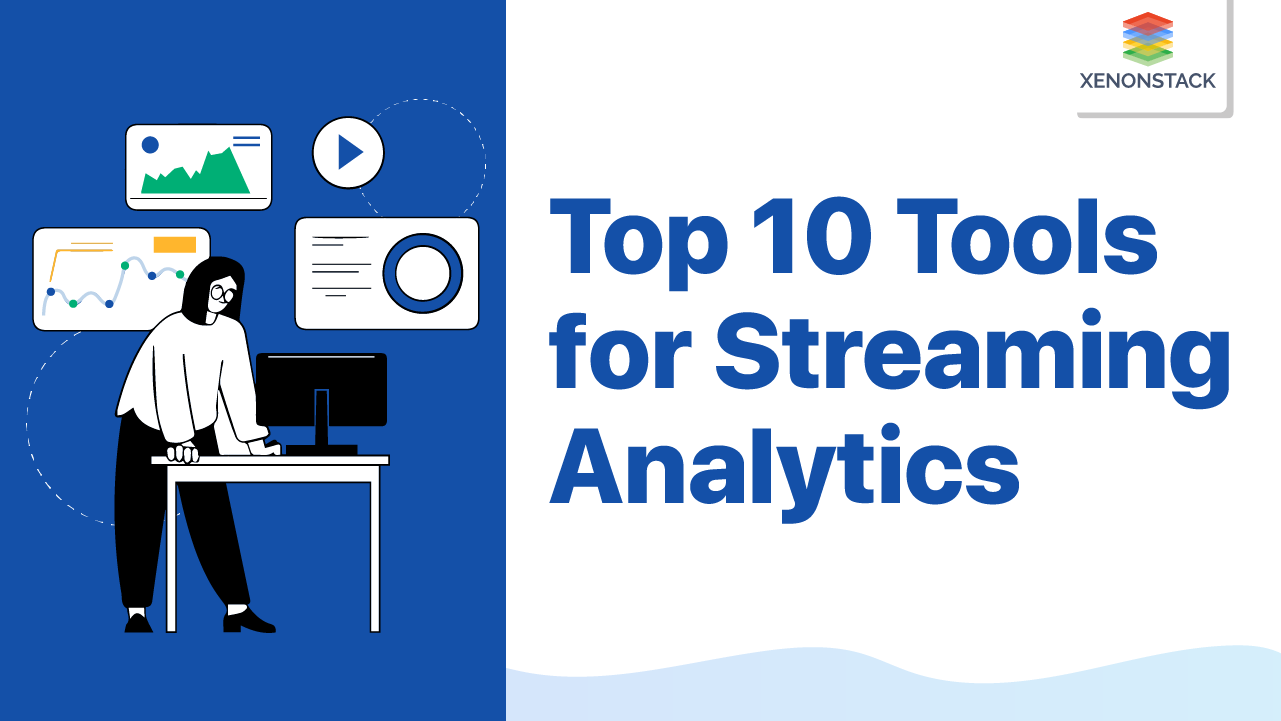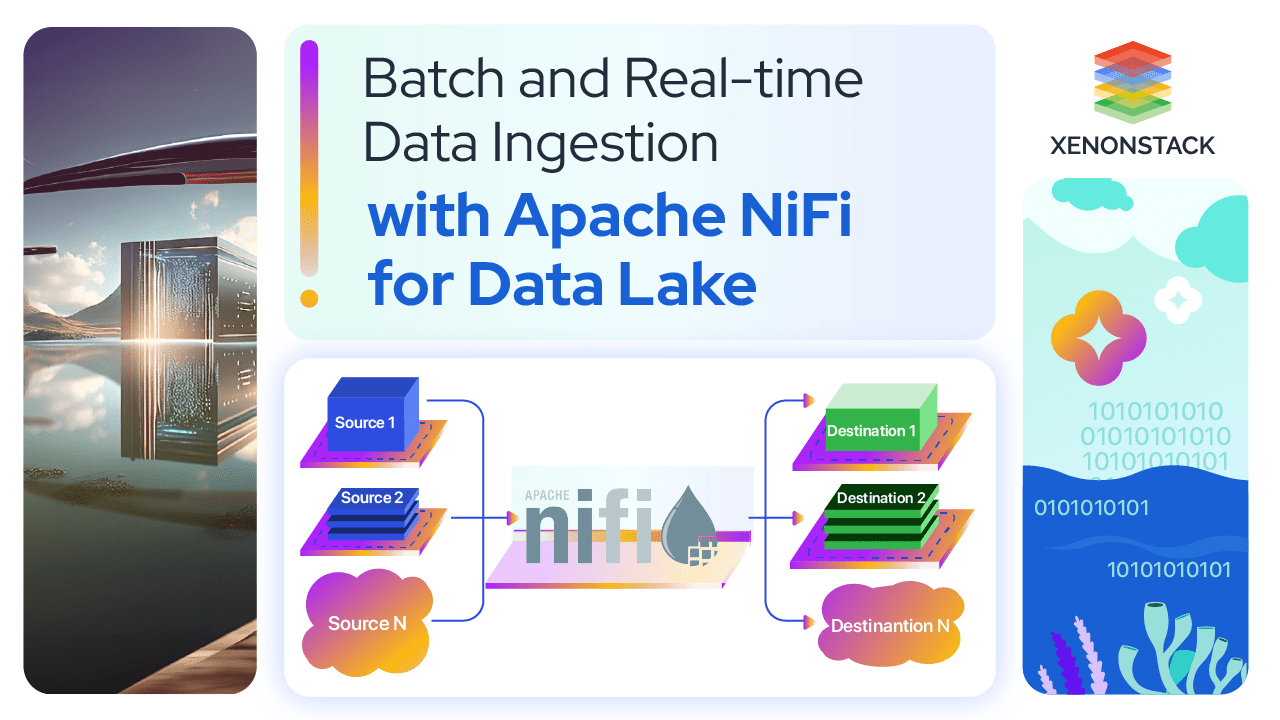
Understanding the Importance of Data Reliability
When we achieve data reliability, we’ll see data as a code. Of course, data has become the fuel for every business aspect, but the question is, is that fuel reliable? According to a recent survey, less than 50% of business executives rate their organization's data as “good data.” Every business needs it for decision-making. So, where does that leave the executives who have it that aren't in a reliable state? They are either using unreliable or worse. They are making wrong decisions. So to make the right decisions, we need reliable ones. Although people see it as another part of the process, it has already become the “Must have” part of every business. Data reliability is essential for ensuring data quality and driving organizational efficiency through better business intelligence and more accurate performance metrics.
To leverage a variety of Data to support the Company’s overall business strategy and able to define critical assets. Click to explore about, Top 12 Enterprise Data Strategy to Transform Business.
Bad data can lead to huge losses, so we make it reliable to avoid them and make the right decision. In this blog, we’ll begin with the definition of reliability and then move on to the feature and how we can achieve it.
What is Data Reliability and its Core Concepts?
Data reliability is an aspect of data quality that defines how it is complete and accurate, ultimately building data trust across the organization. Organizations can make the right decisions based on analytics with reliable sources, which removes the guesswork. It is the tool that gives us accurate analysis and insights. Data reliability is the most crucial aspect of improving data quality. This is the fuel for every business and organization, but it has become the must-have part of every business. We all invest in it, even if we are not working directly on it. If an organization acknowledges its importance and invests in it, then it would be way more profitable than businesses that are not investing in it.
Completing it would be very difficult or even impossible. So, rather than making the data reliable, we will first assess how much we have through data quality assessments and data profiling.
A clear strategy is vital to the success of a data and analytics investment. As part of the strategy, leaders must consider how to ensure data quality, governance, and literacy in their organizations. Click to explore Data and Analytics Strategy.
Steps to Effectively Assess Data Reliability
Data reliability is leveraged to find the problems in data, and sometimes we don't even know the existence of these problems. We assess the various parameters to assess the reliability as it is not a concept based on one particular tool or architecture. Assessing it gives the idea about its state and how much it is in a reliable state.
-
Validation: The parameter that defines data is stored and formatted correctly, which basically checks its quality and ultimately leads to data reliability.
-
Completeness: How much data is complete and missing? Checking this aspect gives you an indication of how much you can rely on the results. As checked, it can be missing, leading to compromised results.
-
Duplicate Data: There shouldn't be any duplicate data. Duplicacy can be checked to achieve reliable results and also save storage space.
-
Security: We assess data security to check whether it is modified in the process. This might happen by mistake or intentionally. Robust security leads to data reliability.
-
Data Lineage: Making data lineage gives the whole idea about the transformation and the changes that have been made to the flow from source to destination. Which is an essential aspect of assessing and achieving data reliability.
-
Updated Data: In some scenarios, updating the data and even updating the schema according to the new requirements is highly recommended. The extent to which it is updated can be assessed.
When we dig deep into these factors, we also learn the other aspects of data quality, like the source, transformation, and operations, which are essential aspects of sensitive data.
Data is increasing rapidly in almost every aspect of human life, data security has become very important. Click to explore about Big Data Security Management.
Key Differences Between Data Reliability and Validity
When we talk about data reliability and validity, there's a misconception that they are the same. Although these two are different in a way, they are still dependent on each other.
|
Aspect |
Data Reliability |
Data Validity |
|
Definition |
Refers to the consistency, completeness, and accuracy of the data. |
Refers to whether the data is correctly stored and formatted. |
|
Focus |
Ensures the data can be trusted for decision-making and operations. |
Ensures data is valid according to certain rules or standards. |
|
Key Factors |
Completeness, accuracy, consistency, data lineage, security. |
Correct formatting and adherence to predefined rules or criteria. |
|
Interdependency |
Dependent on validity to ensure it is correctly formatted but also requires completeness and accuracy. |
Validity is necessary for reliability, but data completeness is also required for reliable data. |
|
Example |
Missing or duplicate data makes it unreliable, even if it is valid. |
Data may be valid (correctly formatted) but incomplete (missing crucial information). |
|
Impact on Business |
Affects operational efficiency, decision-making, and trust in data. |
Ensures data is trusted for specific use cases but doesn't guarantee overall reliability. |
An open-source data storage layer that delivers reliability to data lakes. Click to explore about, Delta Lake
Exploring Essential Data Quality Frameworks
Data quality is a concept that includes many data quality parameters, such as completeness, uniqueness, and validation. So, there’s no direct tool to achieve data quality. Rather, we use many tools depending on our databases and use cases to make them reliable.
Various tools used to achieve different aspects of it are described below.
-
Data Validation Tools: Tools and open-source libraries can be used to validate our data. For example, AWS Deequ is a library built on top of Spark that allows us to check its completeness, uniqueness, and other validation parameters.
-
Data Lineage Tools: Making data lineage to the data transformation gives us an idea about the operations performed on it and what changes were made, which is very helpful in improving quality. Apache Atlas is one of the open-source tools that can be used to make data lineage.
-
Data-quality Improvement Tools: There cannot be a general tool for data quality, which can be achieved by fulfilling various data quality parameters. Tools like Griffin, Deequ, and Atlas collectively help us make data reliable. So, how you proceed to achieve data quality completely depends on your particular case.
-
Data Security Tools: Data security tools help ensure that not everyone in the organization has access to data. This is crucial to avoid unexpected data changes, whether accidental or intentional. Proper access control and security protocols lead to reliable data and prevent unauthorized modifications that could compromise data integrity.
The process of analyzing the data objects and their relationship to the other objects. Click to explore about Data Modelling.
Practical Approaches to Ensuring Data Reliability
Various tools and technology can achieve data reliability. Making stored data reliable is ten times costlier than keeping track of when ingesting data. To make reliable data, we should see it as code. Like a programming language code, it doesn’t get compiled if there are errors. When we start seeing every small error in this manner, we will achieve quality and, hence, reliability. Here are some points that will help you make data reliable from the initial state to the final storage.
Ingest with Quality
Ingesting reliable data can save time and money. When you take data from any source, you should have validation parameters such as rejecting null or invalid data and ingesting only what you need. Ingesting too much data that is not required can slow down the whole process, impacting data performance and data consistency.
Transform with Surveillance
After ingestion, the problem might occur at the data transformation level. To detect such problems, we create data lineage, which shows us the complete journey of data from source to destination and the changes that have been made at what level. This is ultimately necessary to make our data trustworthy and reliable.
Store with Validation
As they say, prevention is better than cure. So, before dumping data into our database, we should do every possible validation to check it. Once bad data gets saved into databases, it would be ten times more costly to make that data reliable again. Also, it is essential to make sure that the data is in the required schema according to the database we will save data.
Improve Data Health Frequently
Data, once saved, will not be reliable forever, no matter whether it was reliable in the first place or not. So we must keep up to date and monitor data health. Rome wasn’t built in a day, and neither is data reliability. To achieve data reliability, we must go through the process and frequently put in little effort to make that data reliable.
Data Quality Metrics
Data quality metrics quantitatively define the data quality. It gives an idea about the parameters, which helps analyze and achieve data quality. These metrics can be achieved at the lineage's source, transformation, and destination levels.
Schema Mapping
Schema mapping techniques help create reliable data, as data is mapped to the required format before saving it to the database. Hence, there will be no conflict of schema mismatch and no data missing due to this.
An important part of Data Science. It includes two concepts such as Data Cleaning and Feature Engineering. Click to explore about Data Preprocessing and Data Wrangling in ML.
Key Benefits of Maintaining Data Reliability
-
Accurate Analysis of Data: With reliable data, the results would be more accurate than unreliable data. For example, we have temperature measurement data from a sensor stored in a database, and then, with some analysis, we want the average temperature. But if the data we stored wasn’t reliable, let’s say some points were missing, we will have wrong results. This emphasizes the importance of data completeness, accuracy, and validation to ensure that the analysis is trustworthy and correct.
-
Business Growth: Reliable data is the key to business success. We predict certain trends based on our data, like upcoming traffic on our website. However, if the data on which we are applying predictive analytics is filled with duplicity, we will get the wrong analysis results. So, to resolve this problem, we must ensure our data is reliable, which is crucial for making informed decisions that drive business growth.
-
No Data Downtime: Data downtime occurs due to erroneous, incomplete, duplicated, or invalid data. Data downtime can lead to huge losses in the business in terms of time and economy. Reliable data helps reduce that downtime or prevent it altogether. By ensuring data accuracy, consistency, and completeness, we can eliminate the risk of data downtime, ensuring that operations continue smoothly.
-
Brand Value: Reliable data helps make accurate results, and trust in data is built. From the customer’s perspective, the organization becomes trustworthy as it always gives the right results with no data downtime. This leads to increased trust in data, which in turn builds the brand value of the organization. When an organization consistently provides accurate and reliable information, its brand value strengthens, fostering long-term success.

Real-World Use Cases for Data Reliability
Agriculture Data Gathering for Predictive Analysis
Data from IoT sensors is used to predict crop quantity based on weather and environmental conditions. If the data is unreliable due to missing or duplicate data, the predictions can be inaccurate, affecting agricultural decisions.
Healthcare Data for Patient Monitoring
Healthcare devices collect data on patient vitals, which must be accurate for proper treatment. If this data is unreliable, such as missing heart rate readings or incorrect glucose levels, it can lead to dangerous medical decisions.
Retail Inventory Management
Retail businesses rely on accurate inventory data to manage stock levels and fulfill orders. Unreliable data, such as incorrect stock counts or missing inventory updates, can result in overstocking, stockouts, or lost sales.
Financial Transaction Monitoring
In the financial industry, reliable transaction data is critical to prevent fraud and ensure accurate financial reporting. Errors in transaction records, such as missing details or incorrect amounts, can result in discrepancies and compliance issues.
Smart City Infrastructure
Smart cities collect data from traffic sensors, environmental monitors, and public service systems to improve city management. Unreliable sensor data can lead to traffic mismanagement or safety hazards for residents.
Major Future Trends in Data Reliability
Final Thoughts on Data Reliability for Businesses
Data has become the fuel for every business and organization. It becomes very important to have the right quality fuel. This can be achieved by data reliability. It is not just the need anymore; instead, it has become a must-have part of every business. As discussed above, having reliable data is very important; without it, a business can be at a loss. So, to avoid any loss or wrong results, we must have reliable data.
Actionable Next Steps for Improving Data Reliability
Connect with our experts to explore how implementing data reliability practices can transform your business. Discover how industries and departments leverage data governance and data integrity to ensure decision-centric operations. Utilize data reliability strategies to automate and optimize data management processes, improving both efficiency and accuracy in decision-making.


